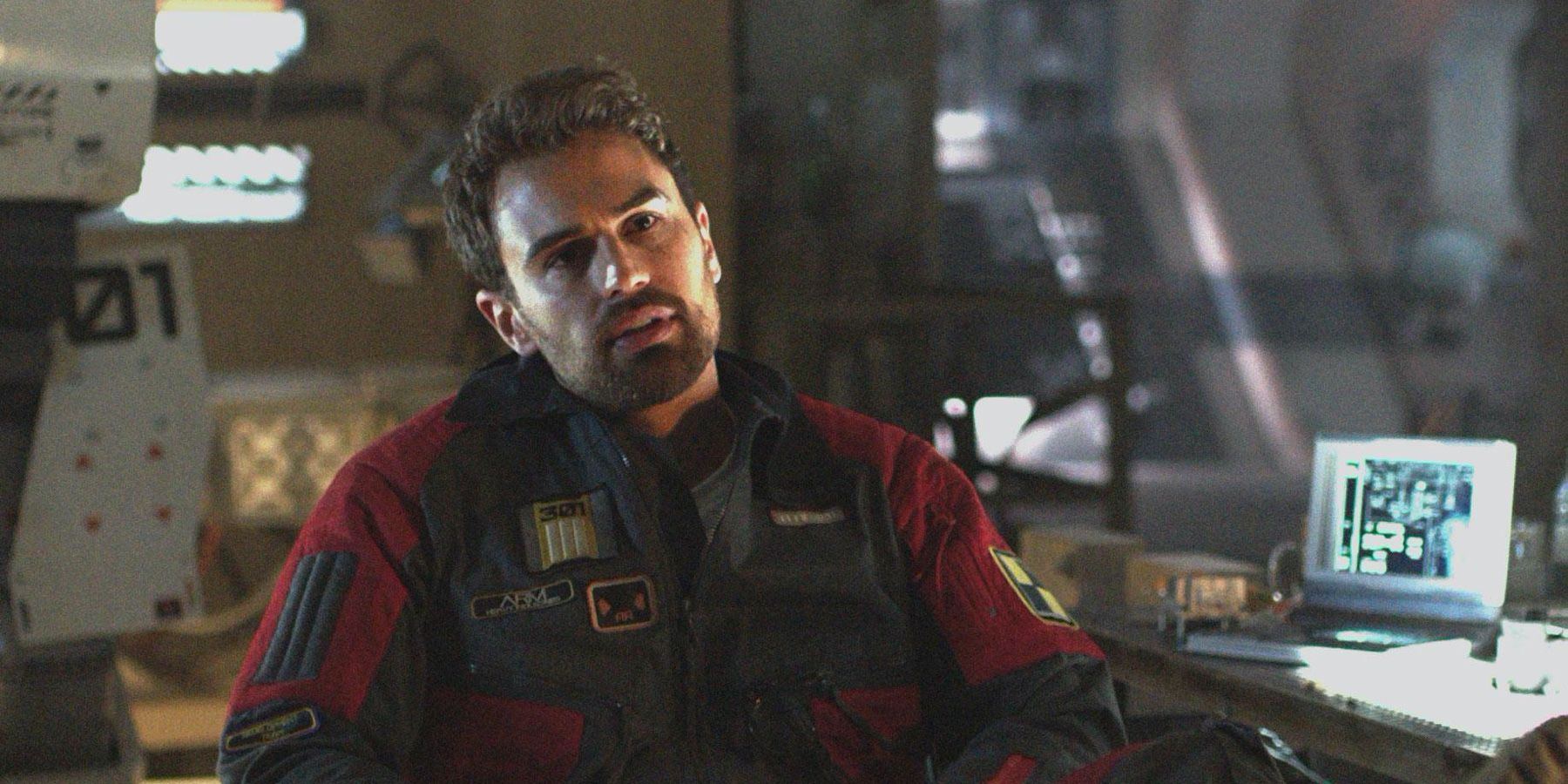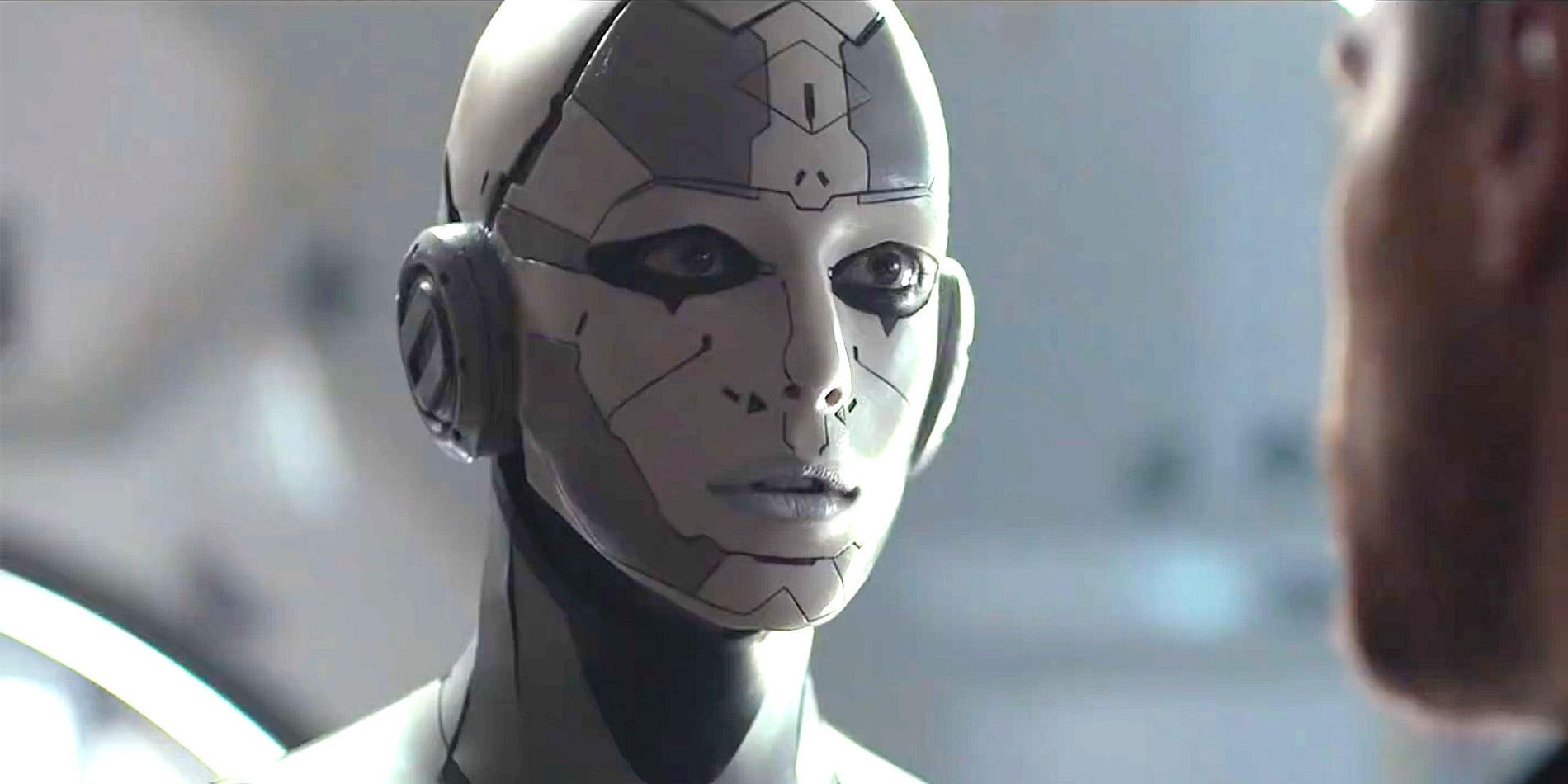Theo James not only stars in Archive, he also produces it through his company Untapped. The latest robot drama to explore the meaning of humanity is helmed by first-time feature film director and writer Gavin Rothery, who was the conceptual designer of 2009’s Moon.
Screen Rant spoke to James in advance of the July 10 release of Archive, and the actor explained what inspired him about Rothery’s vision as well as how deftly the science fiction film deals with the themes of love and loss.
This is the debut feature from Gavin Rothery, who both writes and directs. How did he get on your radar?
Theo James: He and Phil Herd, the producer on it, came and watched a play I was in about three and a half years ago. And then we started talking after it, and they sent me the script. I loved it; I thought the script was great, because it had philosophical themes on what it means to be human.
But then Gavin sent this pack over, because he's a designer by trade in many ways. And he'd already designed the look for each robot, down to the smallest detail. In fact, what they look like in the movie is pretty much exactly how he had designed them three years earlier. He had real specificity and vision, and he really knew what he wanted to do.
He's also just a huge movie fan and a massive sci-fi fan, and he really wanted to ground it in those amazing touch point sci-fi films from the 70s and 80s. Alien, those kind of set designs, and Blade Runner. All those sci-fi films that if you love sci-fi, you love creating that - that's the essence of the script. But yeah, it kind of went from there.
Archive seems to use every penny of the film's budget to good use as the visuals in the movie are impressive. What do you feel the visual landscape of the movie adds to the film and story?
Theo James: Not only does the movie look and feel as real as possible, and seated in the narrative as squarely as possible, but also I think the aesthetic is so specific. It's an aesthetic that I loved growing up, watching sci-fi films. It's that retro ability to grab hold of objects and pull and tweak things. We live in a world where sci-fi sometimes is represented by screens and CG stuff; it's done in post. But here they wanted to have it all onscreen and on camera. So. everything's workable; the robots have people inside them that are moving them. There was very little green screen, except for the building out of some of the wider shots of the facility.
And also, as an actor, someone that specific about detail gives you a lot confidence. You know that this person has really thought of every angle and is continuing to think about it constantly, as it's not something that's just come to his mind. It has full maturity, with really rounded world building in it.
That was another thing: we would have conversations about what this fantasy world looks like outside the room. It's kind of great, because you're painting pictures of the idea of corporate espionage in the future and what that represents. Someone who has an ability to world-build like that is really powerful. I think it shows, and we've got some really great stuff in the film.
Can you talk to me about your onscreen chemistry with Stacy Martin and what she brought to the film?
Theo James: She's a beloved French actress who has been in some great movies and loved indie films. As an actress, she's really grounded in reality. You never know how chemistry is going to work until you get on set, so it's a bit of luck. But she's a great actress and a really normal person, so that helps you kind of build the relationship and make it as real as possible.
This film really explores loss through your character in some inventive ways. How did you tap into those elements of George in your performance?
Theo James: George feels responsible for [the loss of his wife]. I think a big part of the film is isolation. So, I kind of wanted to feel as isolated myself as possible to make it feel as real for me as possible. And then the other angle to it was how I would approach it as an actor, and how to find some parallels to a character that may not be that much like you.
Firstly, he's obviously a robot engineer and I'm an actor, so I have no idea about the basics of robotic engineering. I picked up about three books and got maybe four chapters in and realized it wasn't going to take. But I guess the philosophy of it, and looking at what it means to be human, was really the way I got into it. The question of if something begins to look and feel completely human, and be emotional in the way that a human is, at what point do they become human even if they're not housed within the body of a human? And also the idea of death and the soul - where it leaves you, when it leaves you, and how it exists? All those existential questions were the way in for me.
Beyond that, it was Gavin's world, really. He built it so specifically. Once you're on set, that whole internal part of it was completely built out.
In the past few years, you have transitioned into being an E.P. for TV and now Archive is your largest producing venture yet with your company. What was it about this project that garnered your support?
Theo James: Inevitably it happens, I guess the more you work, because you feel like you have some experience to lend beyond just being an actor. And coupled with that, you want to have some agency over the story. I set up a company with a friend of mine, and we now are working quite hard on a bunch of projects.
But this one was something that was stood out in a huge way for me, really because of Gavin. I think his work on Moon was really impressive, and I think in a way he was a little unsung, because that film looked so special. And then when he approached me with Archive, it felt like a really realized world that I was about to build with someone that could create an excellent movie. But also, I think he can go on and continue building worlds and continue making more films with this kind of detail in a bigger way. So I was excited for the movie, but also for his potential as a director.
The movie hinges on the believability of your relationship with the android. How did Rothery shoot these scenes? Were they largely shot practically?
Theo James: First, we reference Silent Running and 70s Douglas Trumbull movies, who was the visual effects guy and designer on Blade Runner and other seminal movies of that period. And then the other one was Metropolis, which is visually a touchpoint.
The three robots have people in them. The largest one was built in the UK and shipped out, and it had a very talented guy in it. But you needed a male figure, because it's so heavy and needed to be manhandled in that way.
And actually, what we did on set was, there was an almost robotic noise that you could use on a slider on an iPad, so that when we will be having a conversation, I would say something and then he could return some kind of noise. It felt like a real conversation. Then you can take that out and replace it with something out.
And then the second robot was a young woman who was actually a circus performer, and she was able to kind of have a really impressive physicality. And then finally Stacy, who was basically in the suit, which took four hours to put on every morning.
Gavin wanted everything to be on camera, and he wanted it to be as practical as possible. So, other than the big, wide shots of the world-building and of the facility, everything was real.
Archive is now available on-demand.


